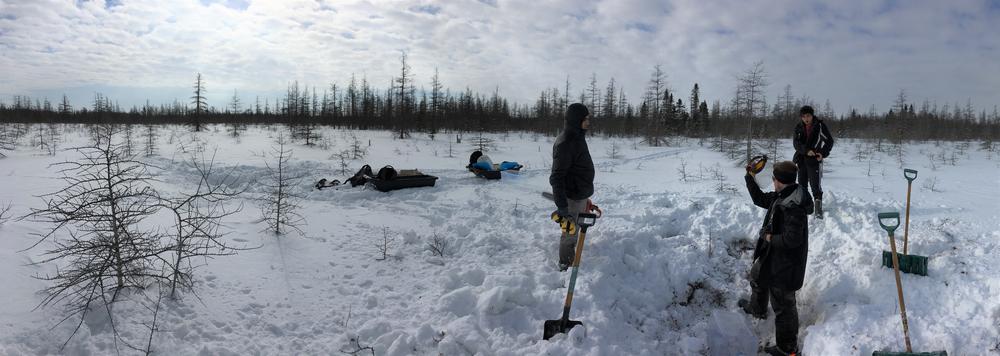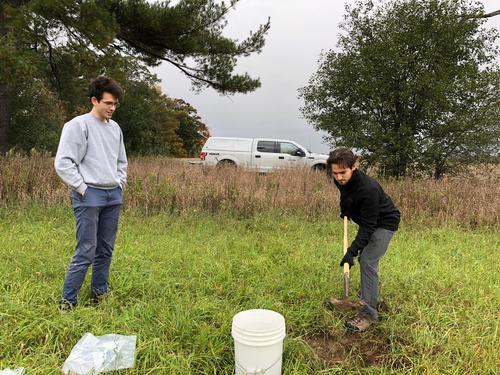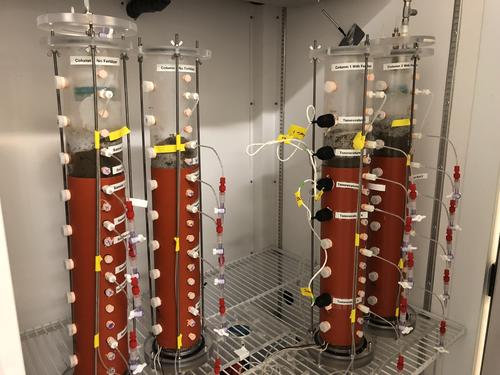Warmer winters are leading to a greater frequency of freeze-thaw events and colder soils due to the loss of the insulating snowpack. These factors are subsequently changing the movement of water, carbon and nutrients in soils during the winter. Many assume that frozen soils are dormant. However, a new research project at the University of Waterloo is discovering that soils remain biogeochemically active during winter months, just differently from other seasons.
“Our knowledge on the effects of changing winter conditions on soil biogeochemical processes and fluxes is limited,” said Water Institute member and professor Fereidoun Rezanezhad from Waterloo’s Department of Earth and Environmental Sciences, leading the research project Winter Soil Proccesses. “Only 5% of warming studies have focused on this critical ecosystem’s winter conditions.”

Konrad Krogstad, supervised by Prof. Rezanezhad and his colleague Grant Jensen from Waterloo’s Department of Biology who is supervised by Water Institute member and professor Laura Hug, are collaborators on the Global Water Futures project, Winter Soil Processes. The two students have been working side-by-side gathering data that shows it is clear that some changes to soil nutrient cycling due to freeze-thaw processes are tied to the soil microbial community.
“Grant and I have been collaborating since we began designing our first experiment, ensuring that the experimental design met both of our needs,” said Konrad. “Grant’s expertise in biology is proving to be very beneficial for this research in determining whether nutrient shifts are microbially driven.”


Identifying biogeochemical drivers, such as energy and nutrient delivery, on winter microbial community composition, functions and dynamics, is critical to establishing an understanding of winter biogeochemical cycles. Working collaboratively, Konrad and Grant will examine the microbial activities during winter conditions to estimate the effect of repeated freeze-thaw cycles on microbial resilience and biological carbon and nutrient release.
“Water issues are inherently interdisciplinary issues,” said Konrad. “Working with a biologist outside of my home discipline to not only check whether an explanation for an observed occurrence is reasonable, but also comprehensive, has been a benefit while working on this project.”
The Winter Soil Processes project, led by professor Fereidoun Rezanezhad, aims to develop novel experimental systems that simulate realistic soil conditions during freeze-thaw cycles and improve fundamental understanding of biogeochemical processes under freeze-thaw events during the winter to spring transition.
Learn more about Winter Soil Processes and the Global Water Futures project at the University of Waterloo.